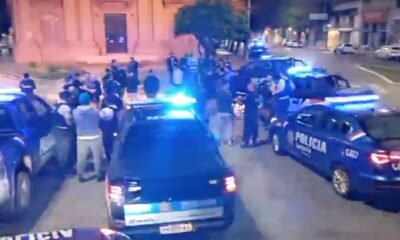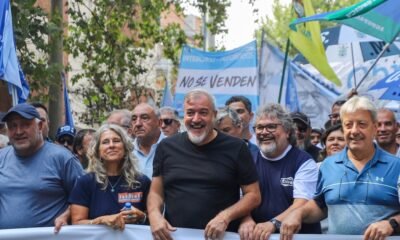INTERNACIONAL
Fears of another narco-state rise as Latin American country readies for pivotal vote

Ecuadorians go to the polls today in a runoff election between incumbent President Daniel Noboa and leftist challenger Luisa González. Noboa is seen as a pro-Trump conservative, while González is viewed as an ideological ally of Venezuelan dictator Nicolás Maduro.
Noboa refused to recognize Maduro as the legitimate president of Venezuela after his staged 2024 election and is also committed to fighting criminal gangs with all available resources to restore peace and security in Ecuador.
It’s expected González will follow in the footsteps of her mentor, former president Rafael Correa, and seek stronger ties with Latin America’s leftist governments of Brazilian President Luiz Inácio Lula da Silval, Gustavo Petro of Colombia and Gabriel Boric of Chile.
«Security has been his principal mandate as the president of Ecuador. He’s dedicated a lot of time, effort and resources to deal with the security situation,» Joseph Humire, executive director of the Center for a Secure Free Society and senior fellow of the America First Policy Institute, told Fox News Digital.
EXCLUSIVE LOOK INTO TRUMP REPATRIATION FLIGHT ON C-17 MILITARY PLANE TO ECUADOR
Ecuador President Daniel Noboa, who is running for re-election, waves after accompanying his running mate, Maria Jose Pinto, to cast her ballot during the presidential election in Quito, Ecuador, Feb. 9, 2025. (AP Photo/Carlos Noriega)
«However, there’s been only marginal improvements in the security situation, and it’s compounded with other problems,» Humire added.
González is running on a platform calling for an increase in the military’s role in fighting gang violence but also strongly condemns excessive use of force and abuse of human rights.
She «appears to have a softer perspective on the issue of crime, meaning she has not stated her willingness to chase drug cartels but, most probably, would intend to negotiate with them,» Mathias Valdez Duffau, visiting fellow at the Center for International Studies at Catholic University of Argentina, told Fox News Digital.
Valdez Duffao said a policy of negotiation is similar to the policy of former President Correa’s administration and would focus on whole-of-government crime reduction approaches that would look to integrate criminal gangs into civil society.
«The reality is that negotiating with criminal gangs might give the government a short-term space to maneuver, but the gangs become stronger and end up co-opting government officials, which eventually leads the country to the brink of becoming a narco-state,» ValdezDuffao warned.
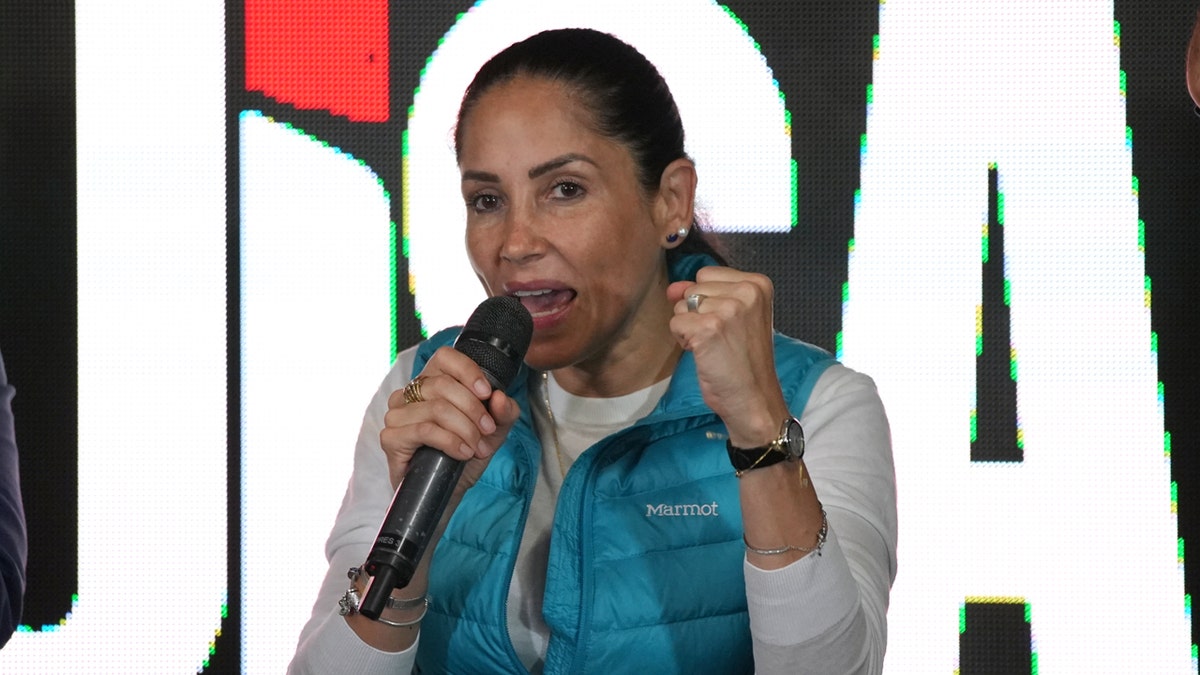
Luisa González, presidential candidate for the Citizen Revolution Movement, speaks after polls closed for the presidential election in Quito, Ecuador, Feb. 9, 2025. (AP Photo/Carlos Noriega)
Violence and insecurity remain at the top of voters’ minds. Ecuador has the highest murder rate in Latin America, with 6,986 recorded homicides in 2024, making it the second most violent year in Ecuador’s history. Some 95,000 people fled the country in 2024 as many communities became focal points of turf wars between rival gangs competing for territory.
President Noboa declared an internal armed conflict in 2024 and ordered the armed forces to carry out military operations to neutralize various transnational organized crime groups. The anti-crime initiative saw an increase in the military’s presence in prisons and communities across the country.
RUBIO SCORES KEY WINS FOR TRUMP IMMIGRATION AGENDA WITH BLITZ THROUGH LATIN AMERICA
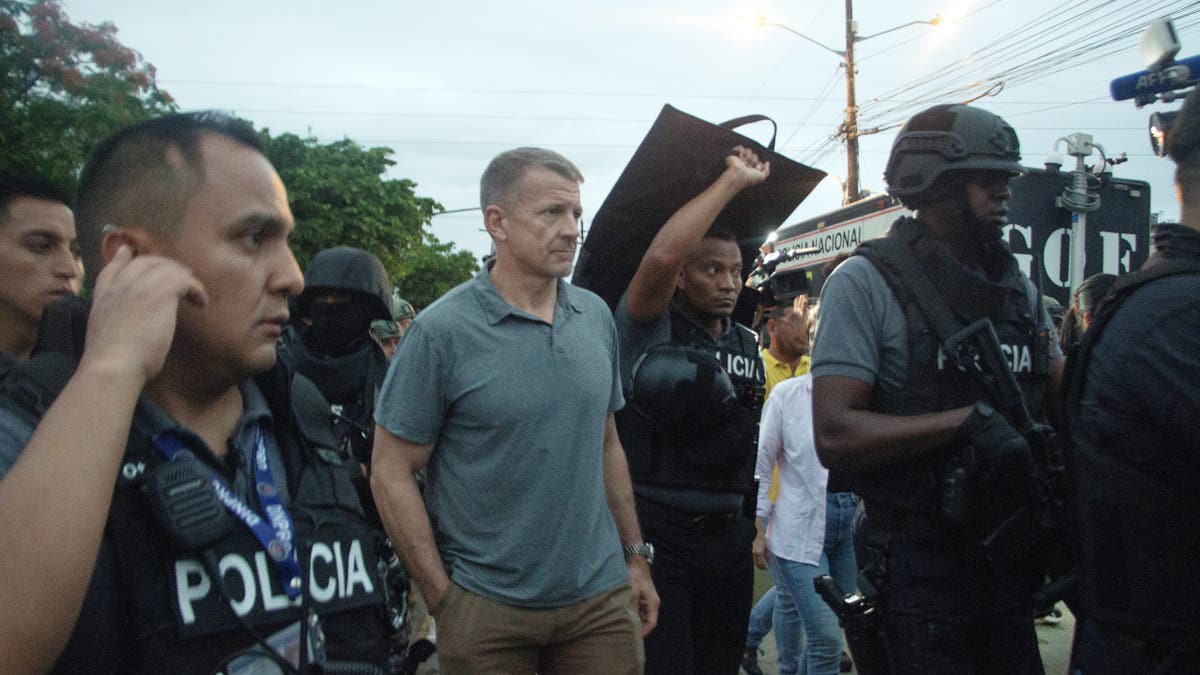
Blackwater founder Erik Prince walks with police officers during the Apolo 13 anti-crime operation April 5, 2025, in Guayaquil, Ecuador. (Agencia Press South/Getty Images)
Noboa also called for the international community to provide military assistance and suggested the U.S. army could work with Ecuador to combat violent gangs.
Despite the president’s hardline position on crime, January 2025 was Ecuador’s most violent month in recent history, with 781 people killed. Noboa partnered with Erik Prince, founder of the private security firm Blackwater, and formed a strategic alliance in March to strengthen Ecuador’s ability to fight narcoterrorism.
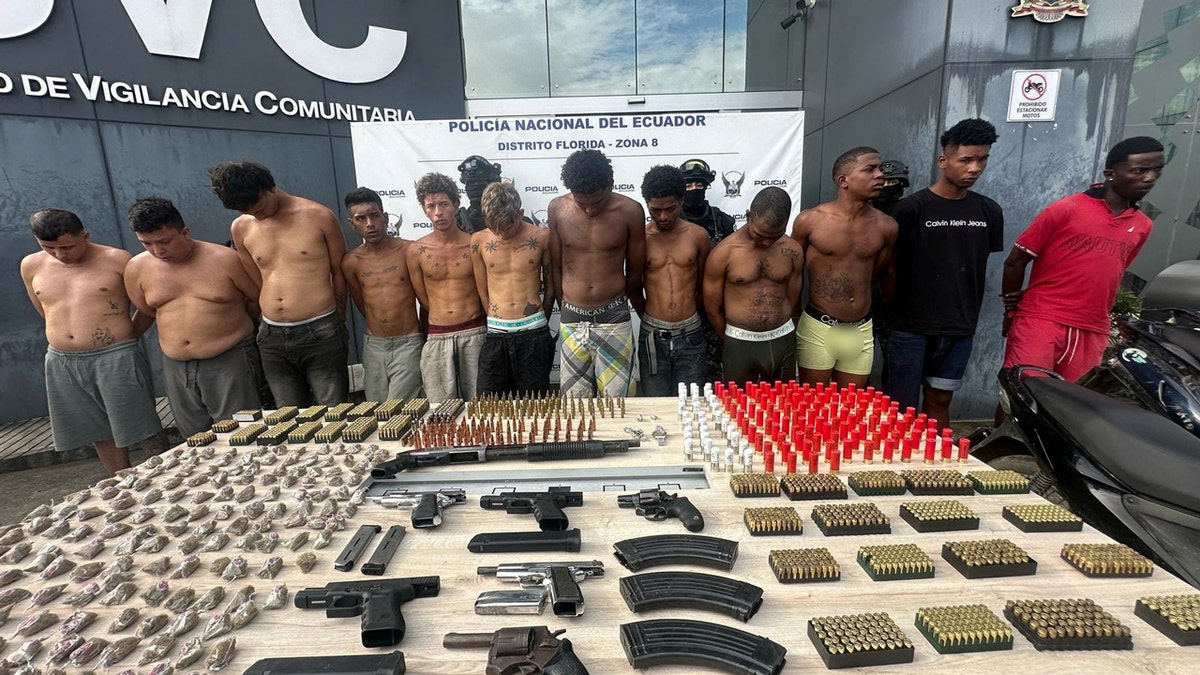
Ecuador’s National Police presents individuals detained during a police operation after gang clashes that resulted in multiple victims in Guayaquil, Ecuador, March 7, 2025. (Ecuador Interior Ministry/Handout via Reuters)
InSight Crime, a nonprofit focusing on organized crime and security in the Americas, reports that Ecuador is one of the region’s «most significant drug trafficking hubs» and ships cocaine from Peru and Colombia to Central America, Mexico and Europe. Many of these drug trafficking organizations working through local proxies and other criminal groups have infiltrated the prison system and expanded its network of street gangs.
The various groups operating throughout Ecuadorian society and within the prison system work with domestic and international drug traffickers, including the Sinaloa Cartel, considered one of the most powerful drug trafficking organizations in the world and responsible for a large amount of fentanyl trafficked into the U.S., according to the Department of Justice.
President Noboa and González each received around 44% of the vote in the first round of the election. González is the leader of Citizen Revolution and is considered the heir of former President Correa. She’s also looking to become the first female president of Ecuador. If she wins, Ecuador could see a return to the leftist economic policies of the Correa presidency.

Banners with an image of Daniel Noboa, Ecuador’s president and a presidential candidate (top) and leftist presidential candidate Luisa González are pictured on a street in Guayaquil, Ecuador, April 11, 2025. Ecuador will hold a presidential runoff April 13. (Raul Arboleda/AFP via Getty Images)
EXCLUSIVE LOOK INTO TRUMP REPATRIATION FLIGHT ON C-17 MILITARY PLANE TO ECUADOR
Whoever wins in the second round will have to contend with an evenly divided National Assembly split between both parties, making legislation to solve the country’s endemic violence and economic problems even more difficult.
Saúl Medina, a former governor of Tungurahua, told Fox News Digital that, after the electoral cycle, a comprehensive and determined strategy to combat gang violence must be enacted.
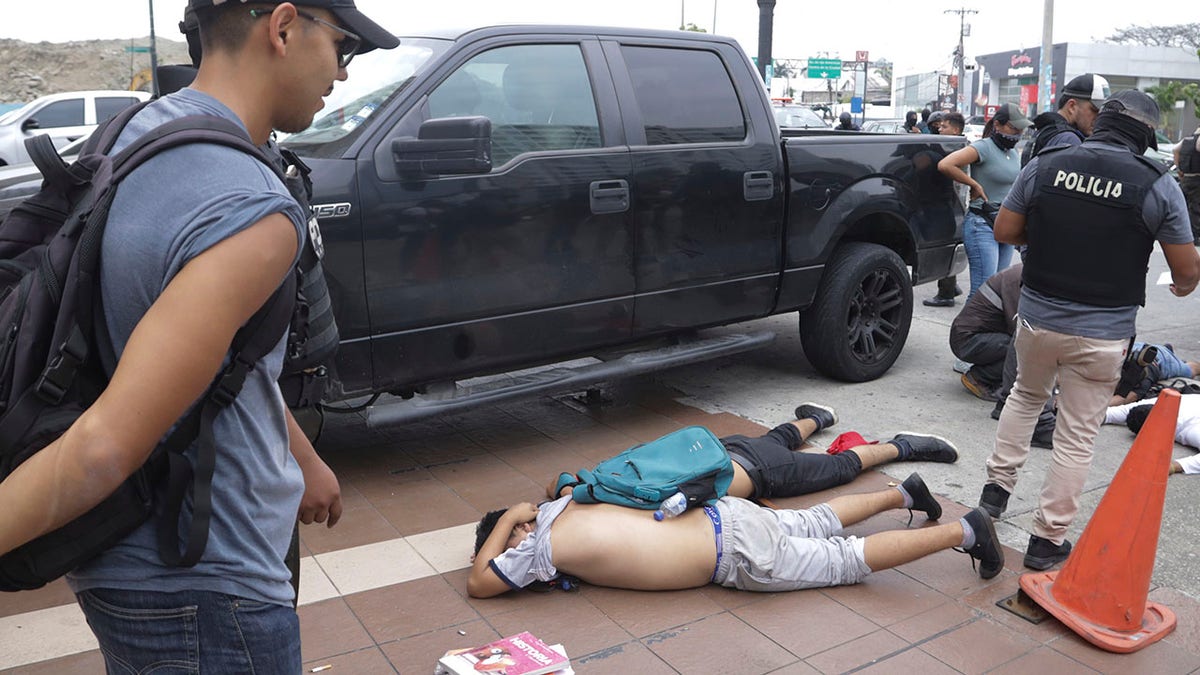
Men lie face down on the ground, detained by police outside TC Television after a producer told police they were part of a group that broke onto their set during a live broadcast in Guayaquil, Ecuador. (AP/Cesar Munoz)
CLICK HERE TO GET THE FOX NEWS APP
Two of the most important issues that must be addressed, according to Medina, are strengthening institutions and executing better oversight of the police and justice system to root out corruption, and prison reform.
«Prisons must stop being operational centers for gangs,» Medina added.
Valdez Duffao, Humire and other experts on Latin America agreed Noboa has ingratiated himself with President Trump. They are ideologically similar and, should Noboa win, it could put him in a better position to address the country’s endemic violence.
INTERNACIONAL
El cuestionado servicio anti inmigrantes de EE.UU. se encargará de la seguridad durante el Mundial de Fútbol: temen arrestos y deportaciones de fans
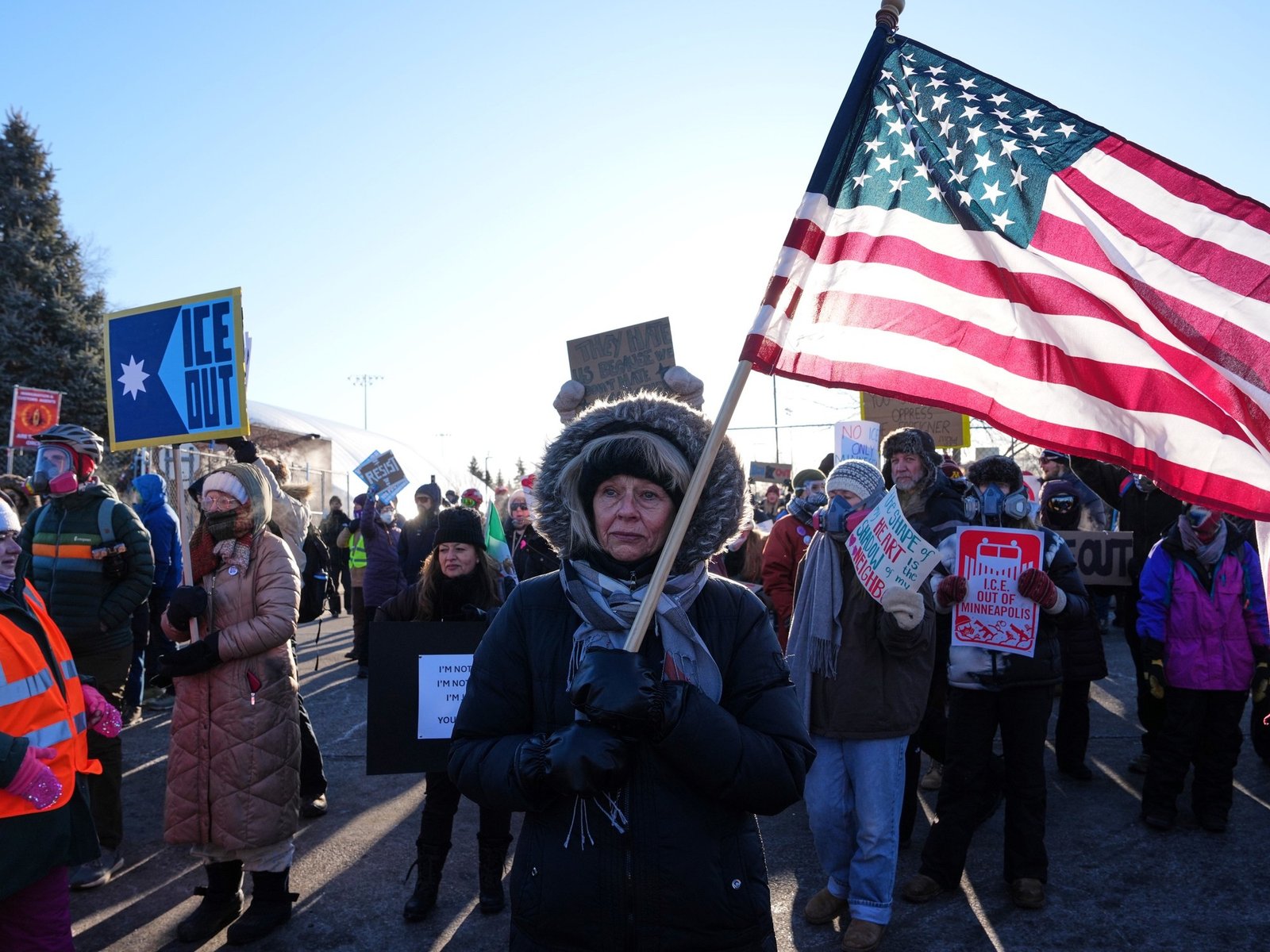
Preocupación
INTERNACIONAL
Western Hemisphere defense chiefs convene after border drone scare prompts airspace closure
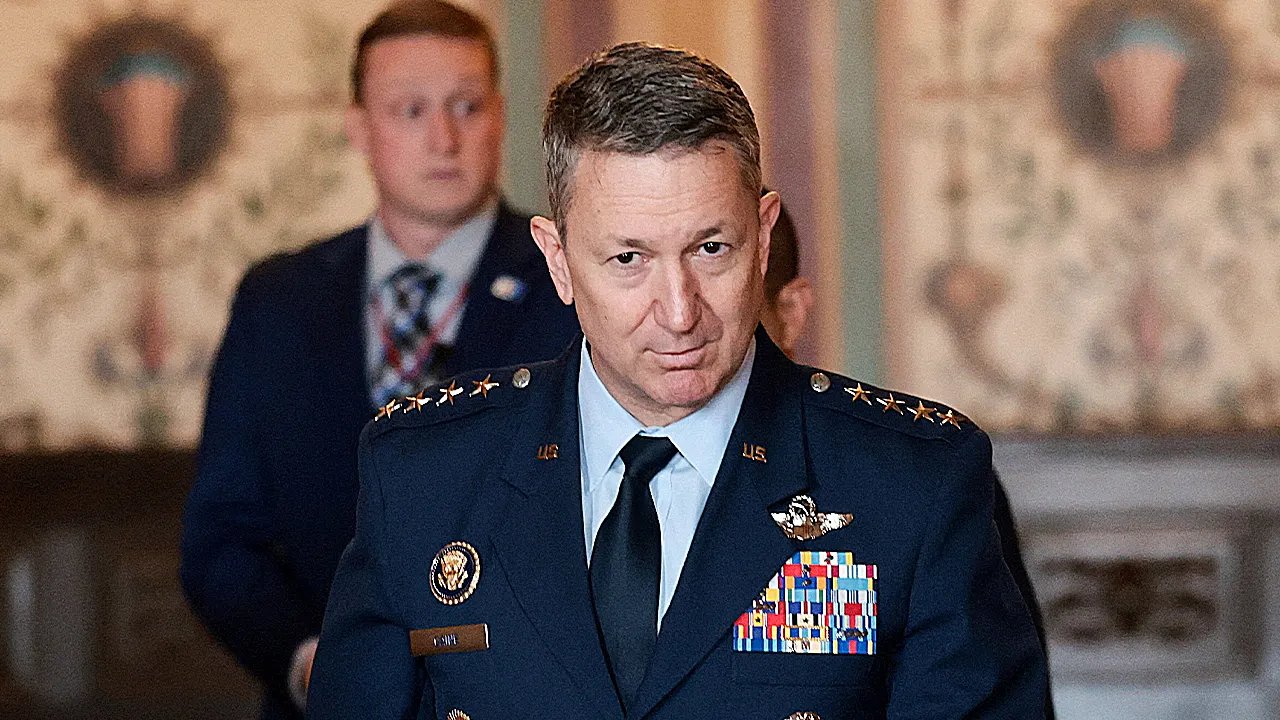
NEWYou can now listen to Fox News articles!
Top U.S. military leaders are hosting more than 30 nations in Washington as the Trump administration moves to deepen security cooperation across the Western Hemisphere, prioritizing border control, drug trafficking and regional threats from global adversaries.
«To put America First, we must put the Americas First,» War Secretary Pete Hegseth said, according to remarks shared by Joseph Humire, U.S. Acting Assistant Secretary of War for Homeland Defense and the Americas.
NORAD AIRCRAFT TO ARRIVE IN GREENLAND FOR ROUTINE EXERCISES
«We must work together to prevent any adversary or criminal actor from exploiting your territory or using your infrastructure to threaten what a great former American president, Teddy Roosevelt, once called ‘permanent peace in this hemisphere.’»
The meeting, convened by Joint Chiefs Chairman Gen. Dan Caine, comes amid a broader national security strategy that places heightened emphasis on threats closer to home: from fentanyl pipelines and transnational criminal networks to Arctic competition and instability in Venezuela.
The conference also coincides with U.S. action against Mexican cartel drones that breached American airspace near El Paso, Texas.
An administration official told Fox News that «Mexican cartel drones breached U.S. airspace. The Department of War took action to disable the drones. The FAA and DOW have determined there is no threat to commercial travel.»
Gen. Dan Caine, chairman of the Joint Chiefs of Staff, is hosting a meeting for the Western Hemisphere defense chiefs in Washington. (Alex Brandon/AP)
The Federal Aviation Administration temporarily restricted flights in and out of El Paso International Airport for what it described as «special security reasons.» Federal officials have not released operational details, but the administration official said the action was directly tied to counter-drone measures along the southern border.
The incident underscores the growing use of unmanned systems by cartel networks and the increasing overlap between traditional criminal activity and homeland defense concerns — a theme expected to surface in discussions among defense leaders gathered in Washington.
Top military leaders from Denmark, Britain and France, nations that have territory in the western hemisphere, have also been invited, according to The New York Times.
FAA WARNS ABOUT FLYING IN CENTRAL, SOUTH AMERICA AND EASTERN PACIFIC, CITING POSSIBLE ‘MILITARY ACTIVITIES’
Gen. Francis Donovan, the new chief of Southern Command, which oversees Latin American and Caribbean operations, is expected to press regional counterparts to intensify cooperation against drug-trafficking organizations and transnational criminal groups that operate across borders and increasingly leverage advanced technology. U.S. officials have warned that cartel networks are using drones, encrypted communications and sophisticated smuggling routes to move narcotics and personnel.

Video shows a kinetic strike on a narco-terror vessel in international waters from Wednesday, Dec. 31. The strikes come amid broader military pressure in the region following high-profile security actions. (U.S. Southern Command via X)
Gen. Gregory M. Guillot, the head of U.S. Northern Command, which leads homeland and north of the U.S. defense including Greenland, is reportedly expected to talk about border controls and integration of advanced sensors across air, land, sea and space domains.
Arctic security also us likely to feature prominently in discussions. The administration has pointed to increased Russian and Chinese activity in the Arctic as a long-term strategic concern and has emphasized the importance of Greenland’s geographic position for missile warning, maritime access and critical mineral resources.

Former Venezuelan President Nicolás Maduro, who was captured by U.S. forces in January in a high-stakes operation and is now facing federal drug-trafficking charges in the United States. The capture has reshaped U.S. security discussions in the Western Hemisphere. (Leonardo Fernandez Viloria/Reuters)
CLICK HERE TO DOWNLOAD THE FOX NEWS APP
The summit comes on the heels of the dramatic U.S. military capture of Venezuelan leader Nicolás Maduro in early January after months of counternarcotics boat strikes.
As the hemisphere’s security landscape continues shifting, defense officials and regional allies alike will be watching to see how other governments with hostile policies toward the U.S. respond to Washington’s increasingly assertive posture.
latin america,pentagon,conflicts defense,drugs,border security,location mexico,joint chiefs of staff,homeland security
INTERNACIONAL
Russia agrees to abide by expired New START nuclear arms limits — as long as US does the same
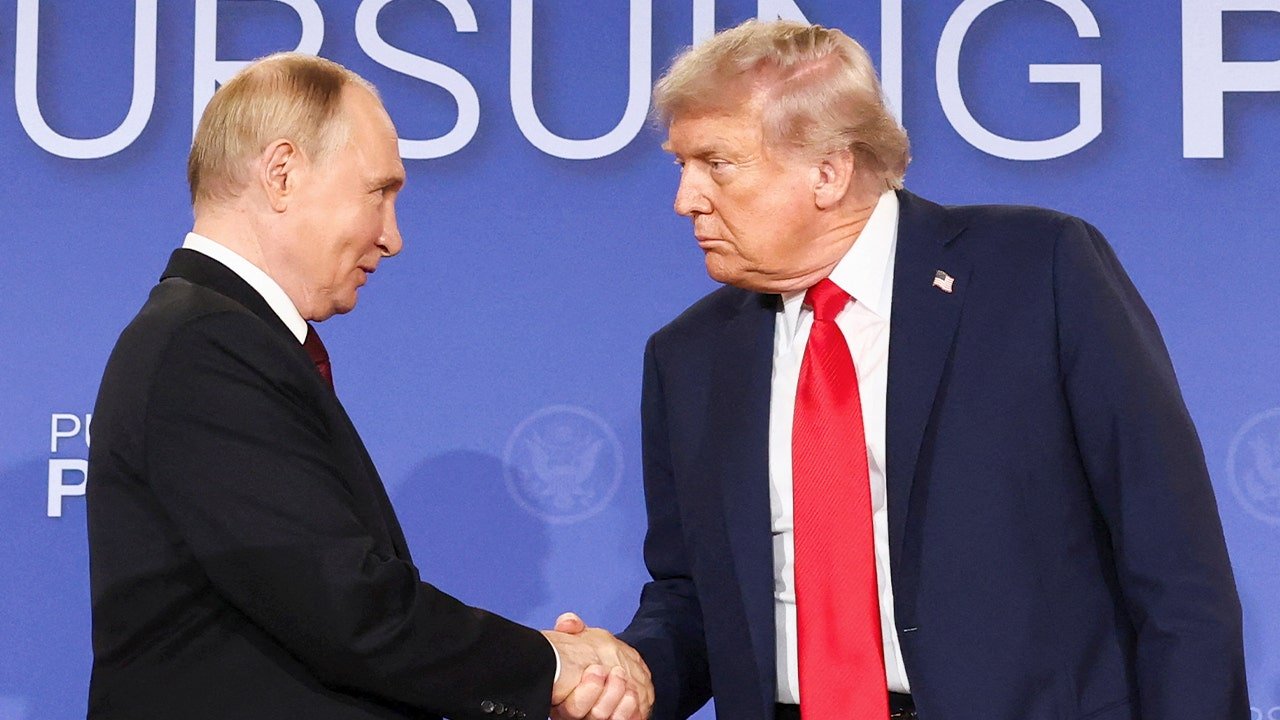
NEWYou can now listen to Fox News articles!
Russia has reportedly agreed to abide by the limits of a nuclear arms pact it reached with the U.S. years ago after the agreement expired last week — as long as Washington does the same.
The New START Treaty’s expiration, which occurred on Feb. 5, leaves the nations with the two largest atomic arsenals with no restrictions for the first time in more than a half-century, The Associated Press reported. The expiration has fueled fears of a possible unconstrained nuclear arms race.
In September, President Vladimir Putin said Russia would abide by the nuclear arms deal for another year after its expiration date as long as the U.S. followed suit, the AP reported. However, President Donald Trump has said he wanted China to be part of a new pact, something that Beijing has rejected, according to the AP.
«Rather than extend ‘NEW START’ (A badly negotiated deal by the United States that, aside from everything else, is being grossly violated), we should have our Nuclear Experts work on a new, improved, and modernized Treaty that can last long into the future,» Trump wrote on Truth Social upon the treaty’s expiration.
WORLD ENTERS UNCHARTED ERA AS US-RUSSIA NUCLEAR TREATY EXPIRES, OPENING DOOR TO FASTEST ARMS RACE IN DECADES
President Donald Trump and Russian President Vladimir Putin meet in Anchorage, Alaska. (Reuters/Kevin Lamarque)
In response to Fox News Digital’s request for comment on the now-expired treaty, the White House pointed to the president’s Truth Social post.
Russian Foreign Minister Sergey Lavrov spoke to lawmakers about the treaty, saying Moscow would «act in a responsible and balanced way on the basis of analysis of the U.S. military policies,» the AP reported.
Lavrov added that «we have reason to believe that the United States is in no hurry to abandon these limits and that they will be observed for the foreseeable future.»

A rocket is launched as part of a ground-based intercontinental ballistic missile test at the Plesetsk facility in Russia on Dec. 9, 2020. (Russian Defense Ministry Press Service via AP, File)
«We will closely monitor how things are actually unfolding,» Lavrov said. «If our American colleagues’ intention to maintain some kind of cooperation on this is confirmed, we will work actively on a new agreement and consider the issues that have remained outside strategic stability agreements.»
TRUMP CALLS FOR NUCLEAR EXPERTS TO WORK ON ‘NEW, IMPROVED, AND MODERNIZED TREATY’
The New START Treaty was signed in 2010 by President Barack Obama and his Russian counterpart, Dmitry Medvedev, and was entered into force on Feb. 5, 2011.
The treaty gave the U.S. and Russia until Feb. 5, 2018, to meet the central limits on strategic offensive arms. The treaty caps each side at 700 deployed ICBMs, SLBMs and nuclear-capable heavy bombers; 1,550 deployed warheads; and 800 deployed and non-deployed launchers and bombers. The parties were then obligated to maintain the limits as long as the treaty remained in force, which it did until last week.

President Donald Trump and Russian President Vladimir Putin shake hands during a press conference following their meeting on Ukraine, in Anchorage, Alaska,, Aug. 15, 2025. (Kevin Lamarque/Reuters)
CLICK HERE TO DOWNLOAD THE FOX NEWS APP
The expiration of the treaty comes just after a meeting involving U.S. and Russian officials in Abu Dhabi. Axios previously reported that the two nations were closing in on a deal to observe the treaty for at least six months after its expiration. The outlet added that during the six-month period there would be negotiations for a new deal.
The State Department did not immediately respond to Fox News Digital’s request for comment.
world,russia,nuclear proliferation,donald trump,vladimir putin

 POLITICA1 día ago
POLITICA1 día agoAcuartelamiento policial en Santa Fe: reclamo salarial y temor a un conflicto nacional de seguridad

 POLITICA1 día ago
POLITICA1 día agoLa advertencia de ATE a los gobernadores que apoyan la reforma laboral: “Firmarán su sentencia de muerte”

 ECONOMIA1 día ago
ECONOMIA1 día agoCuánto le cuesta a la clase media llenar el changuito y cómo varían los precios de los alimentos entre provincias













